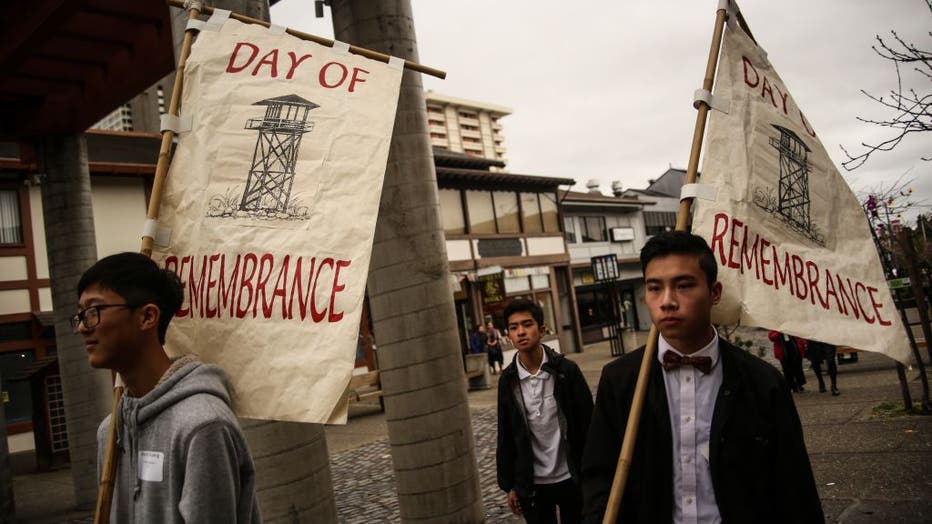Day of Remembrance: A look back at the executive order that incarcerated Japanese Americans 80 years ago

80 years later: The impact of Executive Order 9066
Across the country, the commemoration of a solemn anniversary. Eighty years ago, President Franklin Roosevelt signed Executive Order 9066. The wartime order lead to the exclusion and incarceration of more than 110,000 people of Japanese descent from the west coast.
On this day 80 years ago, President Franklin D. Roosevelt signed Executive Order 9066 which authorized concentration camps in the United States for all people deemed to be a threat to national security because of their Japanese ethnicity or ancestry, regardless of citizenship, birthplace, or loyalty.
President Franklin D. Roosevelt signed Executive Order 9066 on February 19, 1942, to protect against espionage and sabotage. Notices appeared ordering people of Japanese descent to report to civil stations for transport.
Roughly 120,000 Japanese immigrants and Japanese-Americans were sent to desolate camps that dotted the West because the government claimed they might plot against the U.S. Approximately two-thirds of them were born in the US.

SAN FRANCISCO, UNITED STATES - FEBRUARY 19: People walk through Japantown during a candle light procession commemorating the 75th Anniversary of Executive Order 9066 in San Francisco, United States on February 19, 2017. (Photo by Joel Angel Juarez/An
Desperate families sold off belongings for cheap and packed what they could. The luckier ones had white friends who agreed to care for houses, farms and businesses in their absence.
Thousands were elderly, disabled, children or infants too young to know the meaning of treason.
"Others who couldn’t pay their mortgage, couldn’t pay their bills, they lost everything. So they had to pretty much start from scratch," said Rosalyn Tonai, 56, executive director of the National Japanese American Historical Society in San Francisco.
Tonai was shocked to learn in middle school that the U.S. government had incarcerated her mother, aunts and grandparents. Her family hadn’t talked about it. Her mother, a teenager at the time, said she didn’t remember details.
Her organization, the Japanese American Citizens League and others oppose the use of the word "internment." They say the government used euphemisms such as "internment," ″evacuation," and "non-alien" to hide the fact that U.S. citizens were incarcerated and the Constitution violated.
Get your top stories delivered daily! Sign up for FOX 11’s Fast 5 newsletter. And, get breaking news alerts in the FOX 11 News app. Download for iOS or Android.
On the 80th anniversary, President Joe Biden released a statement apologizing to the Japanese-American community; "Today, we reaffirm the Federal Government’s formal apology to Japanese Americans whose lives were irreparably harmed during this dark period of our history, and we solemnly reflect on our collective moral responsibility to ensure that our Nation never again engages in such un-American acts. We acknowledge the intergenerational trauma and loss that the incarceration of Japanese Americans has caused. We also uplift the courage and resilience of brave Japanese Americans who, despite being unjustly incarcerated, formed powerful communities and marshalled incredible dignity and strength," the message read in part.
Tune in to FOX 11 Los Angeles for the latest Southern California news.

